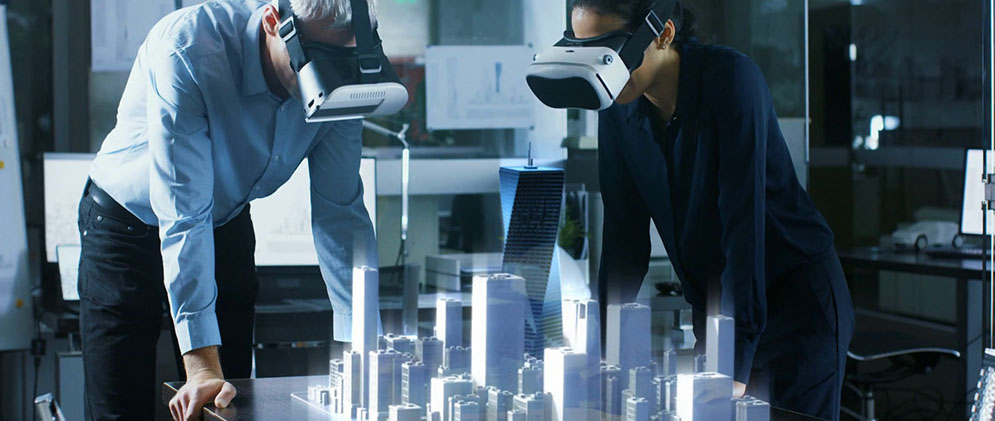Exploring the Virtual in the Physical and the Physical in the Virtual
From The Theme
ADVANCED HUMAN COMMUNICATION TECHNOLOGIES
WHAT IF?
What if we could examine how individuals experience and behave in physical places that are augmented with layers of digital information, and in virtual places that are augmented with layers of physical information?
WHAT WE SET OUT TO DO
We set out to explore the role that location plays in the information sharing behavior of individuals using online social forums. The project compared information broadcasting practices that were non-locative (did not include formal geographical elements) with those that were locative (included formal geographic elements such as geotagging). At the same time, the project compared microbroadcasting, which emphasizes the location of the content producer, with online photo sharing, which highlights the location of the shared object. Data was comprised of artifact collection (N=5000+) from social media sites such as Twitter, Flickr and Jaiku, and interviews with 50 randomly selected individuals from the US and Europe.
WHAT WE FOUND
This research introduces the construct of “socio-locative” practice to scholarship surrounding media, social science and technology. Our research identified three different means of referencing location in individual information sharing practices online. These three socio-locative genres – “citizen and proxy microbroadcasting,” “documentary broadcasting” and “self in place broadcasting” – represent an emerging conceptualization of the relationship between identity and physical and virtual space.
PEOPLE BEHIND THE PROJECT
 From 1998-2009, Diane Bailey was an Assistant Professor in Management Science and Engineering at Stanford University. Currently (as of 2018) she is an Associate Professor in the School of Information at the University of Texas at Austin, where she studies technology and work in information and technical occupations. Her research interests include engineering product design, remote occupational socialization, big data in healthcare, and ICT4D.
From 1998-2009, Diane Bailey was an Assistant Professor in Management Science and Engineering at Stanford University. Currently (as of 2018) she is an Associate Professor in the School of Information at the University of Texas at Austin, where she studies technology and work in information and technical occupations. Her research interests include engineering product design, remote occupational socialization, big data in healthcare, and ICT4D.
 Ingrid Erickson received her PhD from the Center for Work, Technology and Organization in the Department of Management Science and Engineering at Stanford University in 2009. In 2016, she became Assistant Professor at the School of Information Studies at Syracuse University. Previously, she was Assistant Professor of Library and Information Science at the School of Communication and Information at Rutgers University. Erickson’s research interests are focused on how work practices are shifting as mobile technologies dominate professional lives.
Ingrid Erickson received her PhD from the Center for Work, Technology and Organization in the Department of Management Science and Engineering at Stanford University in 2009. In 2016, she became Assistant Professor at the School of Information Studies at Syracuse University. Previously, she was Assistant Professor of Library and Information Science at the School of Communication and Information at Rutgers University. Erickson’s research interests are focused on how work practices are shifting as mobile technologies dominate professional lives.
